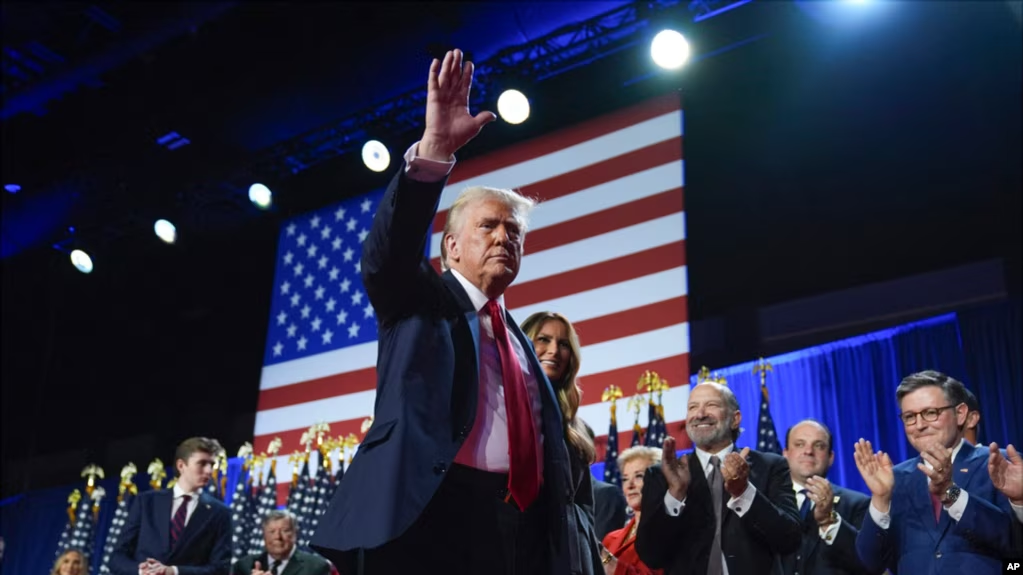African leaders extended official congratulations to Donald Trump Wednesday following his election victory, offering diplomatically worded messages while their nations processed the implications of his return to power.
Kenyan President William Ruto, fresh from a state visit to Washington during the Biden administration, praised Trump’s “visionary, bold and innovative leadership.” Nigerian leader Bola Tinubu expressed hopes for “beneficial and reciprocal economic and development partnerships,” while South Africa’s Cyril Ramaphosa highlighted prospects for continuing “mutually beneficial partnership” between the nations.

The congratulatory messages came as Trump’s victory triggered economic tremors across the continent, with South Africa’s rand dropping almost 3% in early trading. South African media captured the broader anxiety, with Business Day warning of a “harder U.S. approach to Africa” and cartoonist Zapiro depicting a frightened globe watching U.S. election returns.
“Africa is not going to be a priority for the second Trump administration by any measure,” said Steven Gruzd of the South African Institute of International Affairs. “African countries will have to decide how they deal with that.”
The diplomatic niceties mask serious concerns about future U.S.-Africa relations, particularly regarding the renewal of the African Growth and Opportunity Act (AGOA), which provides crucial duty-free access to U.S. markets for many African nations. Cape Town analyst Asanda Ngoasheng warned of potential reductions in trade and public health funding under Trump’s renewed “America First” approach.
Climate change emerged as a particular worry for vulnerable nations. Seychelles President Wavel Ramkalawan voiced concern about potential U.S. withdrawal from the Paris Climate Agreement, asking, “We are going through a climate crisis, so will the U.S. once again pull out of the Paris Agreement? What will be the pronouncement of President Trump?”
Trump’s victory stirred mixed reactions across a continent where his previous term left a complex legacy. Despite riling many with derogatory comments about African nations, he garnered admiration in some quarters for his “strongman” leadership style.
The measured responses from African leaders reflect their need to maintain diplomatic ties with a crucial global partner while preparing for potential shifts in U.S. policy that could significantly impact their nations’ economic and developmental futures.



